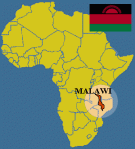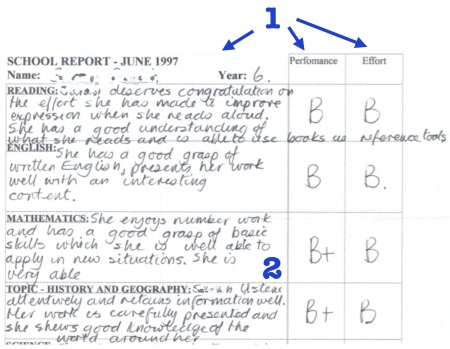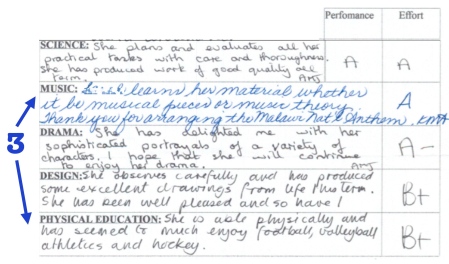For the next several weeks, we’ll look at report cards from around the world.
~ Safari Time! ~
~ 5th Stop ~ Malawi ~
.
A landlocked country in southeast Africa, the Republic of Malawi is home to two UNESCO World Heritage sites, Lake Malawi National Park and Chongoni Rock Art Area. Another impressive geologic formation, the Great Rift Valley, runs through Malawi like a vein. Malawi gained independence from the British in 1964 (only 45 years ago), though examples of colonization remain, such as British standard schools. Unfortunately Malawi ranks as one of the least developed and most populated countries in the world. With a population of about 14 million, low life expectancy and high infant mortality, Malawi relies on foreign aid to develop.
Note ~ This is an international and NOT a local school as some other countries.
.
 Report Card Basics
Report Card Basics
- Type of School: International Primary School (British Standard)
- Academic Year: 1996 – 1997
- Year: 6
.
.
Here’s the report card! The blue numbers highlight a few interesting aspects of the report and the numbers correspond to notes below the image.

1. Performance, Effort and Teacher’s comments
This school has a relatively short report card (1 page, as opposed to the 11 page report card from Australia). Using space allocation as a measure of importance, teacher’s comments constitute the main aspect of the report, followed by performance and, equally as important, effort. Note the use of letter grades, as opposed to number or percentages that are popular in some other areas.
2. Enjoy, Good, Able… Positive reinforcement
The teachers use positive reinforcement in their comments, detailing the student’s capabilities, rather than areas for improvement (assuming the Bs indicate at least a little room for improvement).
 3. It’s a Matter of Effort!
3. It’s a Matter of Effort!
For music, drama, design and physical education, this school only gives grades for effort (and not participation). This indicates a slightly different value system in regards to extra-curricular classes… This may help develop intrinsic motivation, but also indicates that these subjects are less important than the core academic curriculum.
 4. On a Personal Note…
4. On a Personal Note…
At the end of the report, the teacher includes a personal note to the parents, and thanks them for “your kindness and support over the years.” This personal connection indicates the relatively small size of the school but also the closeness of the school community. (The music teacher also includes a “thank you note” in her comments!)
.
See Report Card from: Sydney, Australia, week 1; Sydney, Australia, week 2; Dalhousie, India; Kathmandu, Nepal; Soro, Denmark
Report card analysis to look forward to: Palestine, Canada, Mexico and more!




 Posted by findingschools
Posted by findingschools 